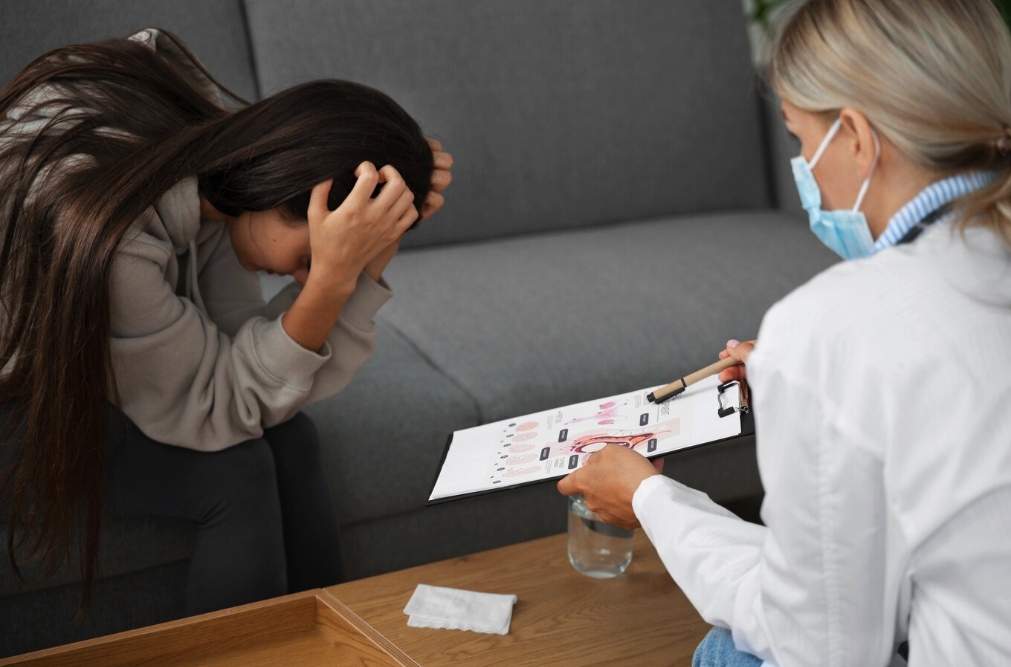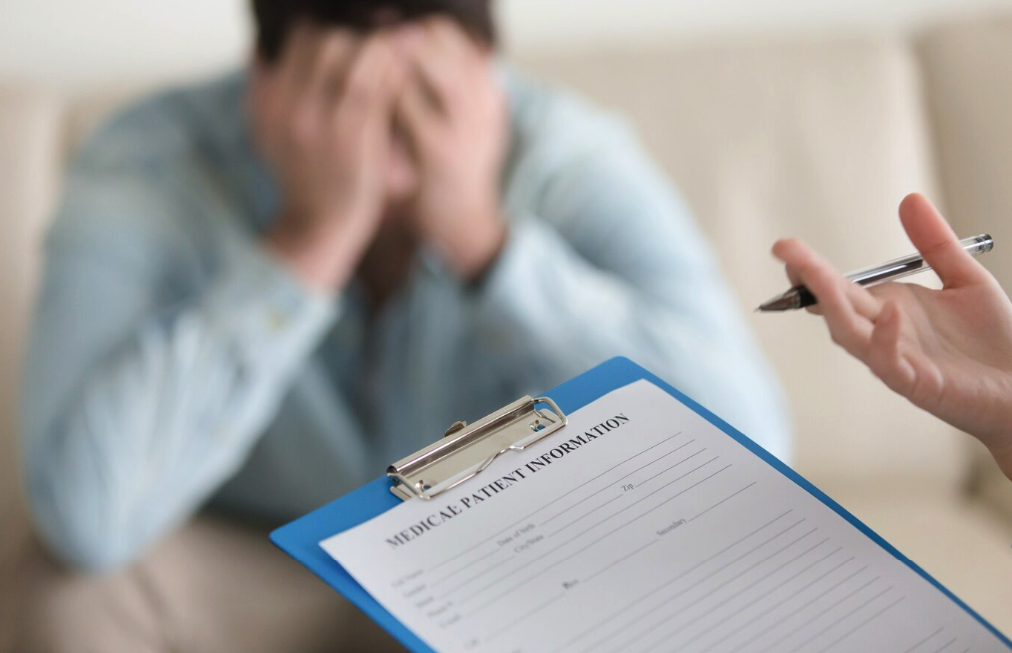A depressed test can help identify signs of depression in a simple yet effective way, and it can help you understand if what you’re feeling is more than just sadness. It’s a simple tool that shows whether your symptoms match signs of depression. You don’t need a doctor’s visit to start—it only takes a few minutes and can be done online or on paper.
Still, knowing what these tests mean and how to use them is important. This guide explains what a depression test is, how it works, and what to do next—clearly and simply, with no confusing terms.

What Is a Depression Test?
A depression test is a short screening tool used to check if you may be showing signs of depression. It usually comes in the form of a questionnaire with simple questions about your recent mood, habits, and thoughts.
Also, depression tests are often used in doctor’s offices, schools, online platforms, or therapy sessions. They’re not meant to diagnose you but can point out if you should talk to a professional.
So, the purpose of a depression test is to:
- Help you reflect on how you’ve been feeling
- Identify symptoms that match depression
- Encourage you to seek help if needed
For example, a test may ask: “How often do you feel hopeless or have little interest in things you used to enjoy?” Your answers can highlight emotional changes you may have ignored.
How the Depressed Test Works
Most depression tests use a rating scale based on how often you’ve felt certain ways in the last 7 to 14 days. The answers are scored and added to give a total score.
Here’s how a typical question looks:
- “In the past 2 weeks, how often have you felt tired or had little energy?”
- 0 – Not at all
- 1 – Several days
- 2 – More than half the days
- 3 – Nearly every day
Each answer gets a point value. At the end, the points are totaled to give a score range. One of the most common tools is the PHQ-9 (Patient Health Questionnaire-9), which has nine questions.
In addition, these tests are:
- Fast – takes 2–5 minutes
- Free to access
- Used worldwide
What the Scores Mean
The total score helps show how severe your symptoms might be. It gives a general idea, not a final answer.
PHQ-9 score guide:
- 0–4: Minimal or no depression
- 5–9: Mild depression
- 10–14: Moderate depression
- 15–19: Moderately severe depression
- 20–27: Severe depression
If your score is 10 or more, you should speak with a doctor, counselor, or mental health professional. Even scores under 10 are important if you’re struggling in daily life. So, no matter the number, if you’re not okay, it’s worth reaching out.
Where to Take a Depression Test

You can take a depression test online, through a health app, or at a doctor’s office. Many are self-guided, private, and quick.
Trusted places to take a test include:
- MentalHealth.gov
- Mental Health America
- PsychologyToday.com
- Mobile health apps like MindDoc, MoodTools, or Ada
- Your local health clinic or school counselor’s office
Also, some workplaces offer wellness screenings as part of employee support programs.
What to Do After the Test
Taking the depression test is only the beginning. What you do after that is what truly makes a difference. Whether your score is high or low, the most important step is deciding how to respond. The test gives you insight—but it’s your action that leads to change.
If your score suggests moderate to severe depression, or if you feel stuck, hopeless, or overwhelmed, it’s time to seek support. Even if your score is mild, but you’ve been feeling “off” or not like yourself, reaching out is still a healthy and helpful choice.
Here are safe and supportive options to consider:
- Talk to your primary care doctor: They can review your results, ask follow-up questions, and refer you to a mental health specialist if needed.
- Reach out to a therapist or counselor: Licensed professionals can help you talk through what you’re feeling and create a plan for support and healing.
- Connect with a school counselor or workplace support team: Many schools and jobs offer free or low-cost resources to help you manage stress, emotions, or ongoing mental health needs.
- Call or visit a local mental health clinic: Community clinics often provide sliding-scale services, walk-in support, or group therapy sessions.
- Use a mental health helpline: These are available 24/7 and offer someone to talk to in the moment, without judgment or pressure.
Even if you’re not sure how serious your symptoms are, it’s always okay to ask questions. Talking to someone trained to help can give you clarity and relief. You don’t need to have all the answers before you reach out—just a willingness to share how you’re feeling.
Also, keep this in mind: You’re not weak for needing help. You’re human. Life comes with challenges, and reaching out shows strength and self-respect—not failure. Many people wait weeks, months, or even years before asking for help. But the truth is, the sooner you take action, the sooner healing can begin. Support is out there—and it works.
So, don’t wait until things feel unmanageable. Whether it’s a conversation with your doctor, a phone call to a local support line, or even just sharing your test results with a trusted friend, every step forward matters. You deserve to feel better, and the path starts with reaching out today.
Things to Keep in Mind
While depression tests are helpful, they are not a replacement for a full evaluation by a professional.

Important reminders:
- Be honest when you answer—the test is for you
- Retake the test if your feelings change over time
- Low scores don’t mean you can’t get support
- Getting help is a sign of strength, not weakness
Also, mood and mental health can shift due to stress, grief, medical conditions, or life changes. That’s why a quick test can be a powerful check-in tool.
When to Get Help Right Away
Some signs need urgent attention. If you’re having thoughts of harming yourself or others, or if you feel hopeless and can’t function, seek help immediately.
Call or text a mental health crisis line:
- U.S.: 988 Suicide & Crisis Lifeline (call or text 988)
- UK: Samaritans – 116 123
- Canada: Talk Suicide Canada – 1-833-456-4566
These services are free, private, and available 24/7.
Conclusion
In conclusion, a depression test is a simple, helpful way to understand what you’re feeling. It’s not a diagnosis—but it is a tool to help you take the next step toward support and recovery. Answer honestly, reflect on the result, and know that help is available. Whether you score low or high, your feelings matter—and you’re not alone.
If you’re struggling, take the test. Then take action. Because feeling better starts with one simple step: understanding what’s going on and getting the help you deserve.
